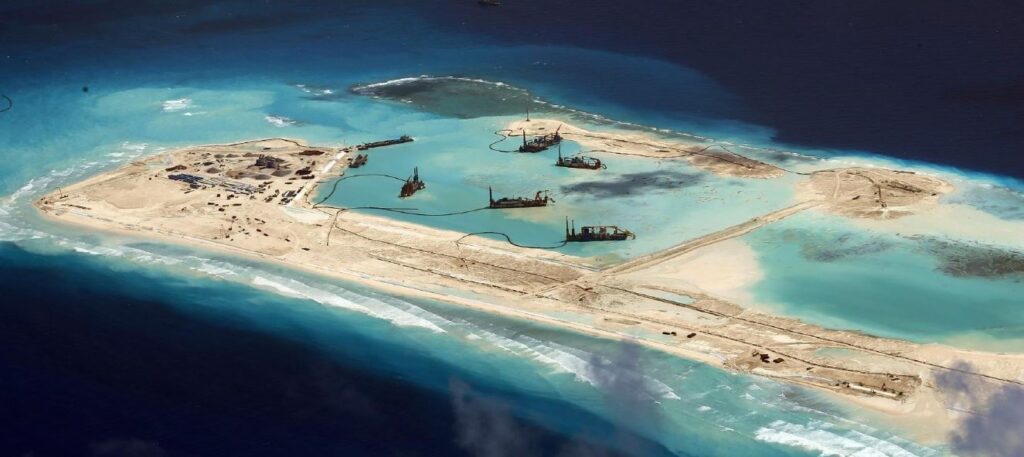WASHINGTON: Defense Secretary Ash Carter, in a speech billed as all about a new personnel approach for the Pentagon, laid out a clear line in the sand of the temporary islands the Chinese have been building.
He reiterated his “deep concern” about “China’s pace and scope of land reclamation in the South China Sea.” Then he let fly with this apparently unequivocal statement: “We want a peaceful solution to all disputes, but let me be clear: the United States will fly, sail, and operate wherever international law allows, as we do all around the world” (emphasis added)
But we understand from two well-informed sources that the US is effectively observing a 12-nautical mile limit around the piles of coral, rock, and sand the Chinese have erected to bolster their claim to the waters inside their Nine Dash Line. International law appears pretty clear that a country may not build a man-made structure outside of its territorial waters and then claim sovereignty over the area. But how do we convey to the Chinese that we do not recognize these islands without physically challenging them? As long as we observe a 12-mile limit, we may test Chinese patience, but the US military is unlikely to directly challenge the Chinese rights to build them, let alone their claim these structures are sovereign territory.
(Of course, it’s worth remembering that China isn’t the only country building article islands. Vietnam and the Philippines have done the same as well in this region.)
The then-new head of Pacific Command, Adm. Harry Harris, put the US case pretty clearly earlier this summer in a punchy speech at the Aspen Security Forum: “China is changing facts on the ground…essentially creating false sovereignty… by building man-made islands on top of coral reefs, rocks, and shoals.” (For a frighteningly complete discussion of China’s claims, see this State Department study done last year.)
Sen. John McCain, an old Navy man with some familiarity with Asian issues, is closely watching the Chinese and American conduct regarding these structures. As we recently reported, Carter did not bend to Senate pressure to retract our invitation to China to participate in the next RIMPAC naval exercises, the largest such in the world. Carter did say he “may modify our defense engagement decisions based on evolving circumstances.”
It wouldn’t surprise if McCain or others raise this issue again soon, once everyone returns to town.
The Obama administration clearly is balancing all of this very carefully. China is a major trading partner and could lash out if prodded too sharply, as they demonstrated when Vietnam challenged them over an oil rig in disputed waters. Are we ready to see an American or Coast Guard vessel rammed by the Chinese when we challenge that 12-mile limit?
Pass a preemptive CR, deal with inflation and watch the debt limit: 3 tasks for Congress
John Ferrari and Elaine McCusker of AEI argue in this op-ed that Congress needs to act quickly to ensure American national security before getting bogged down in election season.



























